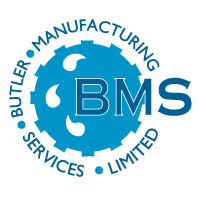What are the different types of Petrol/Oil Interceptor (Separator) and what is the difference between them?
Customer Question:
What are the different types of Petrol/Oil Interceptor (Separator), and what is the difference between them?
Types of Petrol/Oil Interceptors:
There are two main types of Petrol/Oil Interceptors:
Designed to treat the full flow delivered by a drainage system up to 50 mm/hr.
Designed to treat flows of up to 5 mm/hr, covering 99% of rainfall.
Usage of Each Type:
Full Retention Interceptor:
Used where there is a risk of regular contamination of surface water runoff with petrol/oil and/or the risk of larger spills.
Common locations:
Vehicle maintenance areas
Heavy goods parking areas
Areas with frequent vehicle manoeuvring
Bypass Interceptor:
Used where there is a risk of infrequent, light contamination of surface water runoff with petrol/oil and/or the risk of only small spills.
Common locations:
Car parks
Airports
Industrial estates
Roads
Other low-risk areas
How They Work:
Full Retention Interceptor:
Designed to retain the full contents of an oil spill or contamination up to flows of 50 mm/hr.
Bypass Interceptor:
Functions similarly to a full retention interceptor for flows under 5 mm/hr.
For stormwater flows above 5 mm/hr, an internal vortex arrangement allows the storm flows to bypass the retention chamber.
This reduces the interceptor size required while still treating 99% of rainfall, as most pollutants in stormwater are trapped before bypass occurs.
BMS Manufacturing Expertise:
Product Range:
BMS manufactures a full range of ‘plug & play’ interceptors/separators from 1,000 to 100,000 litres.
Products are made from corrosion- and rot-proof GRP under ISO 9001:2015 and comply with European Standards.
Sizing and Selection:
BMS has introduced a complete set of Petrol Interceptor/Holding Tank Sizing & Selection Charts to help you size and select a suitable interceptor or holding tank.
The updated brochure can be downloaded here: BMS Petrol Oil Interceptor Brochure and Selection Charts.
A Load of Bypass Interceptors leaving the BMS Factory
About BMS
BMS is a quality manufacturer of package products for wastewater and stormwater treatment:
Established: 1986
Global Reach: Exported to over 50 countries.
Family Business: A third-generation company with deep expertise.
BMS Product Range
BMS provides a wide array of surface water and wastewater treatment products, including:
View the full product catalogue here
Additional Services by BMS
Free Design Service: For sewage treatment, pump stations, and surface water management.
Operation and Maintenance: Full services for existing installations, including repair, advice, and testing.
Free CPD Presentations: Available for sewage treatment and surface water management, delivered at your location.
We would be delighted to discuss any requirements you might have, and we are available to meet you at your convenience. Contact us today.
© Butler Manufacturing Services 2024.
